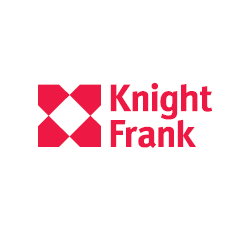Knight Frank’s latest Hong Kong Monthly Report highlights the property market’s performance across different sectors. In August, Hong Kong office leasing momentum remained lacklustre amid weak market sentiment.

Following a gradual pickup in leasing activity in July, Kowloon experienced a slowdown in office activity in August due to the summer holiday period. Residential prices to remain under pressure in the near term, especially for second-hand properties. Hong Kong’s retail market continued to contract, as more locals continued to go north or travel abroad during the summer break.
Grade A Office
Hong Kong Island
In August, Hong Kong office leasing momentum remained lacklustre amid weak market sentiment. The overall Grade A office rent on Hong Kong Island continued to decline in August, decreasing by 6.5% YoY and 3% YTD.
The slow economic growth and property market downturn in Hong Kong have significantly impacted local legal firms and the stock market. Several local law firms, particularly those specialising in conveyancing, IPOs and local securities firms, have scaled back their operations due to the challenging economic environment. Landlords are much more flexible in rental concessions and negotiations to attract and retain tenants.
Despite these challenges, we saw new hedge funds set up in the market, driving new demand for office space below 5,000 sq ft.
In the near term, we expect the office leasing market to remain downbeat. We maintain our rental forecast of a 3% to 5% drop in 2024.
Kowloon
Following a gradual pickup in leasing activity in July, Kowloon experienced a slowdown in activity in August due to the summer holiday period. European companies, in particular, delayed their real estate decision-making, resulting in a significant drop in leasing activity.
Despite a quiet market, leasing activity from semi-retail tenants picked up during the month.
Moreover, the trend of tenants seizing the opportunity presented by falling rents in centralised areas to upgrade their locations continued to prevail in the market. One notable example was the Industrial and Commercial Bank of China (ICBC), which relocated and expanded to a 165,000 sq ft office space in One Harbourfront in Hung Hom, including a canteen area. With ICBC moving out of Kwun Tong, this shift will exert additional pressure on landlords in Kowloon East, potentially leading to a ripple effect that drives down rents in the area.
Overall, given the current condition of the local and global economy, more uncertainty is expected in the market towards the end of the year. We expect rents in Kowloon East to drop by 3-5% due to the ripple effect caused by the exit of ICBC from Kwun Tong, and the overall Kowloon market to drop by 1-3% for the full year of 2024.
Residential
Home prices in Hong Kong continued their downward trajectory in July, dropping by 1.9% MoM, and4.7% YTD, reaching the lowest level in nearly eight years. There has been a significant decline of 25% from the historical peak in September 2021.
Residential transactions have declined for four consecutive months following a recent peak of over 8,500 transactions in April. The total transaction volume remained low at 3,652 in August, according to the Land Registry. However, sales of new developments, supported by discounts, were well-received. First-hand transactions surged nearly 40% MoM in August. Despite the slow economic recovery, demand for luxury homes remained steady.
The rental market, in contrast, maintained its upward trend. The strong demand was driven mainly by newly arrived talent and students from the mainland.
With the US Fed announcing a 0.5% interest rate cut in September, a new cycle of interest rate cuts has officially begun. The Hong Kong Interbank Offered Rate (HIBOR) is expected to continue to fall, while the Prime Rate (P) will go down more slowly. The overall high-interest rate environment will continue to affect the cost of new mortgages. We expect property prices to remain under pressure in the near term, especially for second-hand properties. Given the high inventory of primary stock, we expect property prices to remain under pressure in the near term.
Retail
Hong Kong’s retail market continued to contract, as more locals continued to go north or travel abroad during the summer break. Total retail sales value plunged 11.8% YoY to HK$29.1 billion in July 2024. This marks the fourth consecutive month of decline, underscoring the ongoing weakness in consumer sentiment. Tourism-oriented trades, including clothing, footwear and allied products, department stores, and jewellery, watches and clocks, and valuable goods, all suffered a double-digit decrease in sales value during the first seven months of 2024 compared to the same period in 2023.
The downgrading consumption pattern from tourists and weak spending by locals have had a direct impact on developers. With their deteriorating financial performance, developers are showing more flexibility in rent negotiations to secure high occupancy rates in shopping malls and core retail properties. Looking ahead, the retail sales performance for the remainder of 2024 is expected to remain soft. Nonetheless, the gradual recovery of macroeconomic environment, given the easing of global interest rates, a potential rebound of the renminbi and the influx of top talent from multiple talent schemes, may provide a glimpse of hope for the retail sector.











